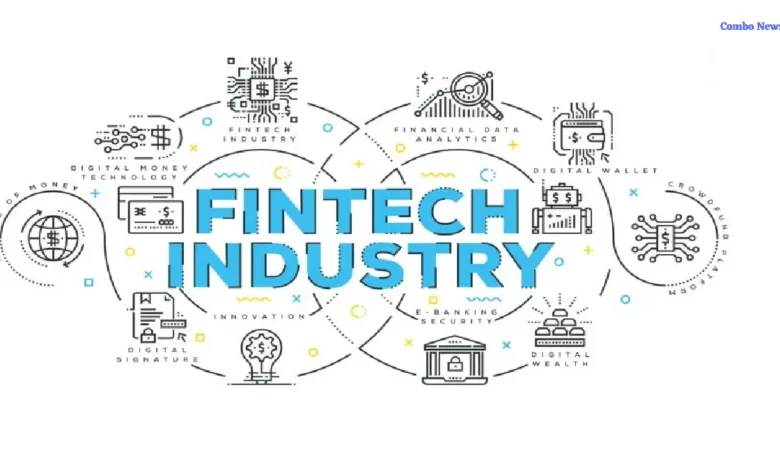The Dynamic Interplay of AI and Cybersecurity in Reshaping the FinTech Industry

In the ever-evolving landscape of the financial technology or FinTech industry, two ground-breaking forces, Artificial Intelligence (AI) and cybersecurity are emerging as crucial factors that not only shape the present but also promise to reshape the future.
The convergence of these two domains has given rise to innovative solutions, transforming the way financial services are delivered and safeguarded. This article delves into the symbiotic relationship between AI and cybersecurity, exploring their impact on the FinTech sector.
The Synergy Between AI and Cybersecurity in FinTech
The intersection of AI and cybersecurity has revolutionized the FinTech sector, introducing unprecedented efficiencies and fortifying its defences against cyber threats. AI-powered algorithms enable financial institutions to analyse colossal datasets at unparalleled speeds, extracting actionable insights that inform decision-making and streamline operations.
Also Read | Global Fintech Festival 2023: Empowering Startups to Secure $10 Million Funding
Moreover, AI’s machine learning capabilities facilitate the development of predictive models, enabling FinTech companies to anticipate market trends and customer behaviors with remarkable accuracy.
As highlighted in a recent article by Analytics Insight, “How AI and Cybersecurity Shape the FinTech Industry“, AI’s integration into financial systems has introduced robust security protocols.
AI algorithms actively monitor and detect anomalies in real time, thwarting fraudulent activities and unauthorized access. These proactive measures not only bolster customer trust but also prevent potentially catastrophic financial losses.
Enhanced Fraud Detection and Prevention
One of the most notable contributions of AI to the FinTech sector lies in its ability to enhance fraud detection and prevention mechanisms. Traditional rule-based systems often fall short in identifying sophisticated cyber threats, whereas AI-driven solutions can analyze patterns, flag irregularities, and adapt to evolving attack methods. This adaptability is crucial as cybercriminals continually refine their tactics to exploit vulnerabilities.
With AI, FinTech companies can stay one step ahead, safeguarding sensitive financial information from malicious intent.
Personalized Financial Services
The utilization of AI has empowered FinTech companies to offer highly personalized financial services to their customers. AI algorithms can tailor financial advice and product recommendations by analyzing customer behavior, spending patterns, and investment preferences. This level of personalization not only enhances the customer experience but also helps individuals make more informed financial decisions. As a result, the adoption of AI in FinTech fosters stronger customer loyalty and deeper engagement.
Challenges and Considerations
While the integration of AI and cybersecurity holds immense promise, it is not without challenges. The article from Analytics Insight [^1] discusses the potential risks associated with AI-powered FinTech solutions. It emphasizes the importance of ethical AI development to avoid biases and ensure that algorithms operate fairly and transparently.
Also Read | In-Demand Fintech Jobs in 2023 | Job Opportunities in the Fintech Industry
Additionally, the article highlights the need for continuous cybersecurity efforts to counter emerging threats that may exploit AI vulnerabilities.
Future Outlook: Continuous Evolution
The interplay of AI and cybersecurity in the FinTech industry is an ever-evolving process. As AI technologies advance, their synergy with cybersecurity measures will lead to even more sophisticated solutions. Quantum computing, for instance, could revolutionize encryption and decryption methods, rendering current cyber defences obsolete.
Therefore, staying at the forefront of AI advancements and embracing agile cybersecurity strategies will be pivotal for the FinTech industry’s sustained growth and security.
In conclusion, the amalgamation of AI and cybersecurity is reshaping the FinTech industry, driving innovation, efficiency, and security. As discussed in the article from Analytics Insight [^1], this symbiotic relationship empowers financial institutions to provide personalized services, predict market trends, and thwart cyber threats.
While challenges exist, the relentless pursuit of ethical AI development and robust cybersecurity practices will propel the FinTech industry into a dynamic and secure future.
Also Read | The Inspiring Success Story Of Former BharatPe Co-Founder And MD Ashneer Grover
FAQs
How does AI contribute to fraud detection in the FinTech sector?
AI utilizes advanced algorithms to analyze patterns and detect anomalies in real-time, effectively identifying potential instances of fraud and unauthorized access.
Can AI-driven personalized financial services replace human financial advisors?
AI-driven personalized financial services complement human advisors by providing tailored recommendations based on data analysis. However, the human touch in understanding complex financial situations remains invaluable.
How does the integration of AI and cybersecurity enhance customer trust?
The integration of AI and cybersecurity results in real-time threat detection and prevention, assuring customers that their financial information is secure and protected.
What challenges does the FinTech industry face in adopting AI and cybersecurity?
The FinTech industry must navigate challenges such as ethical AI development, algorithm biases, and the need to keep up with evolving cyber threats while integrating AI and cybersecurity effectively.








